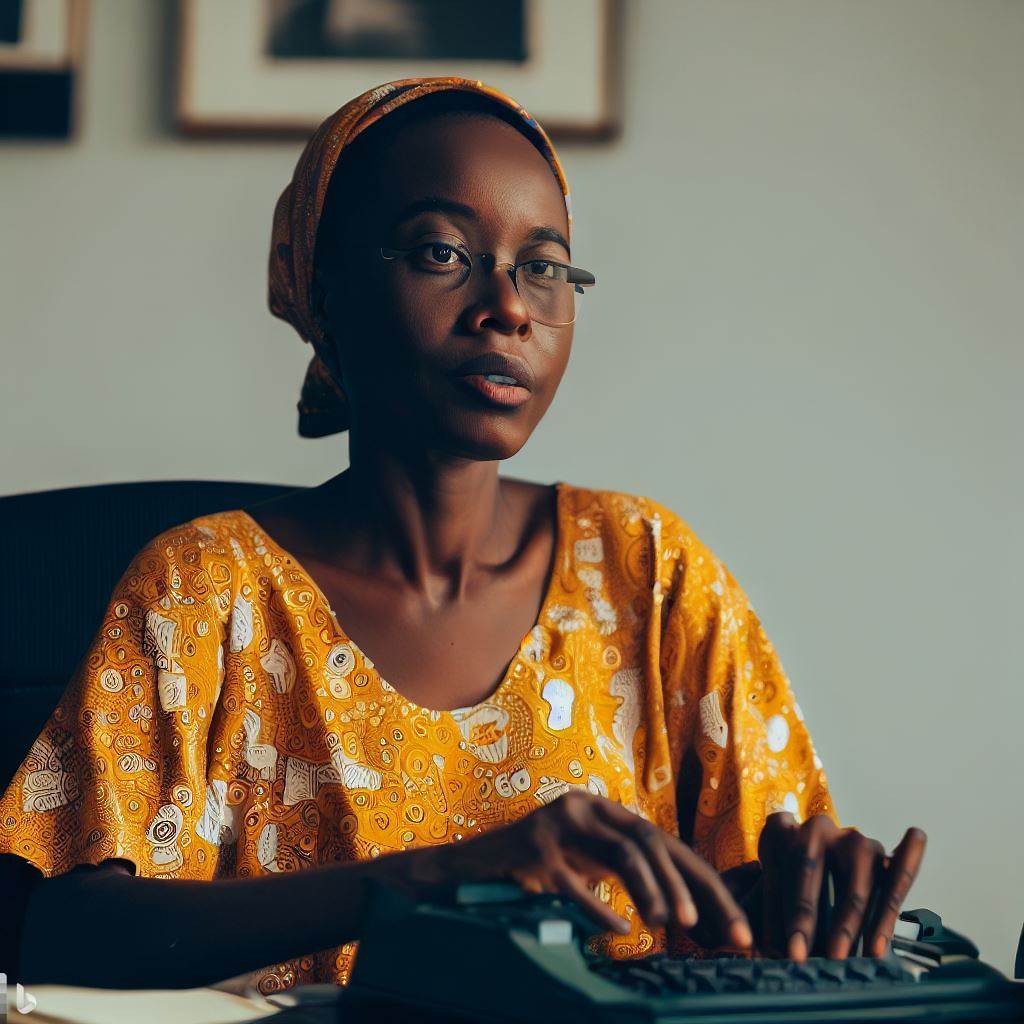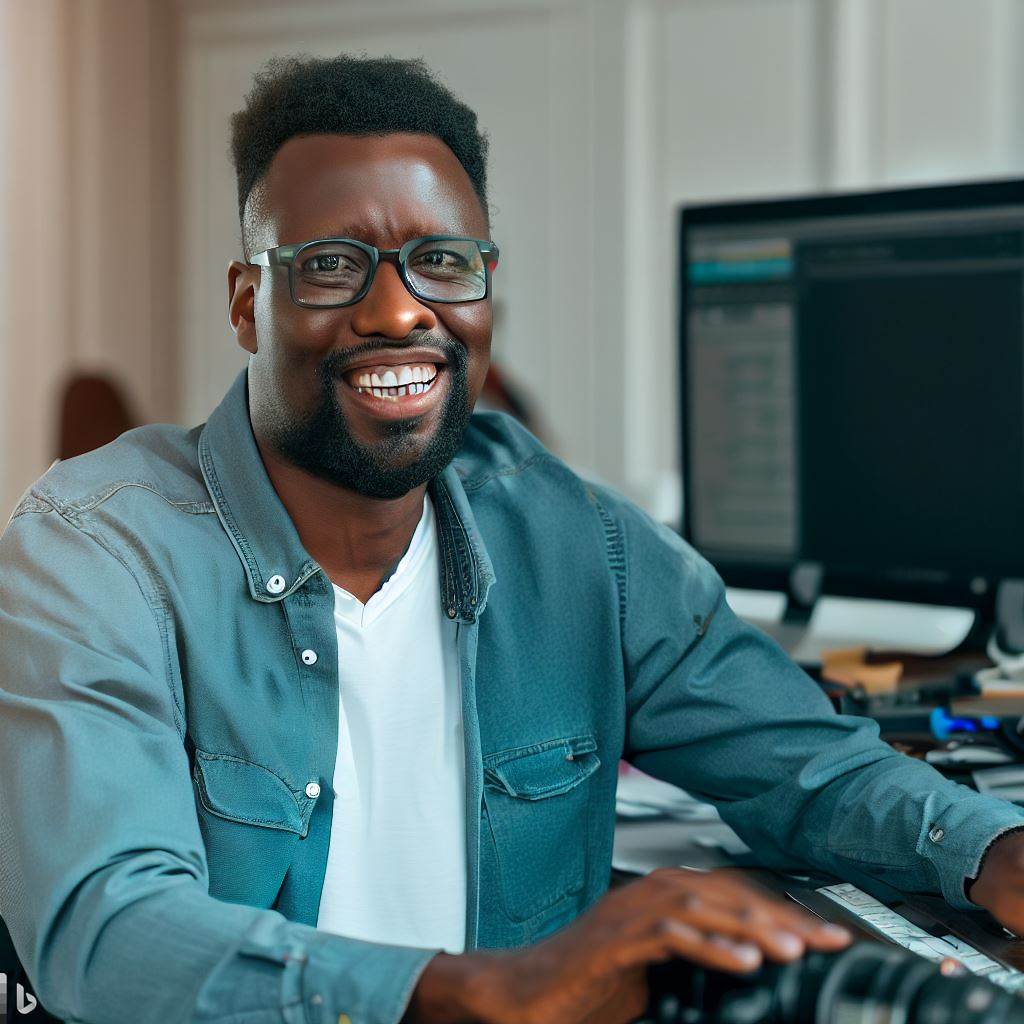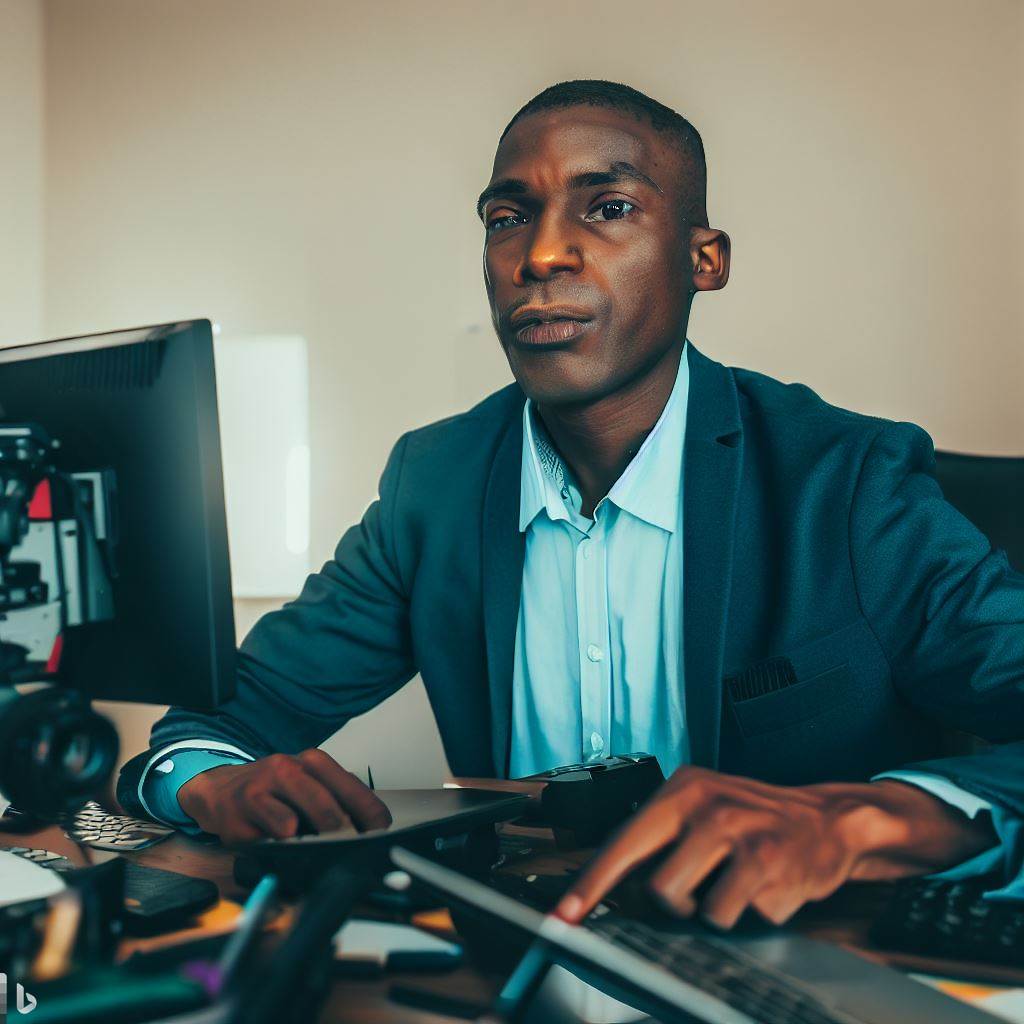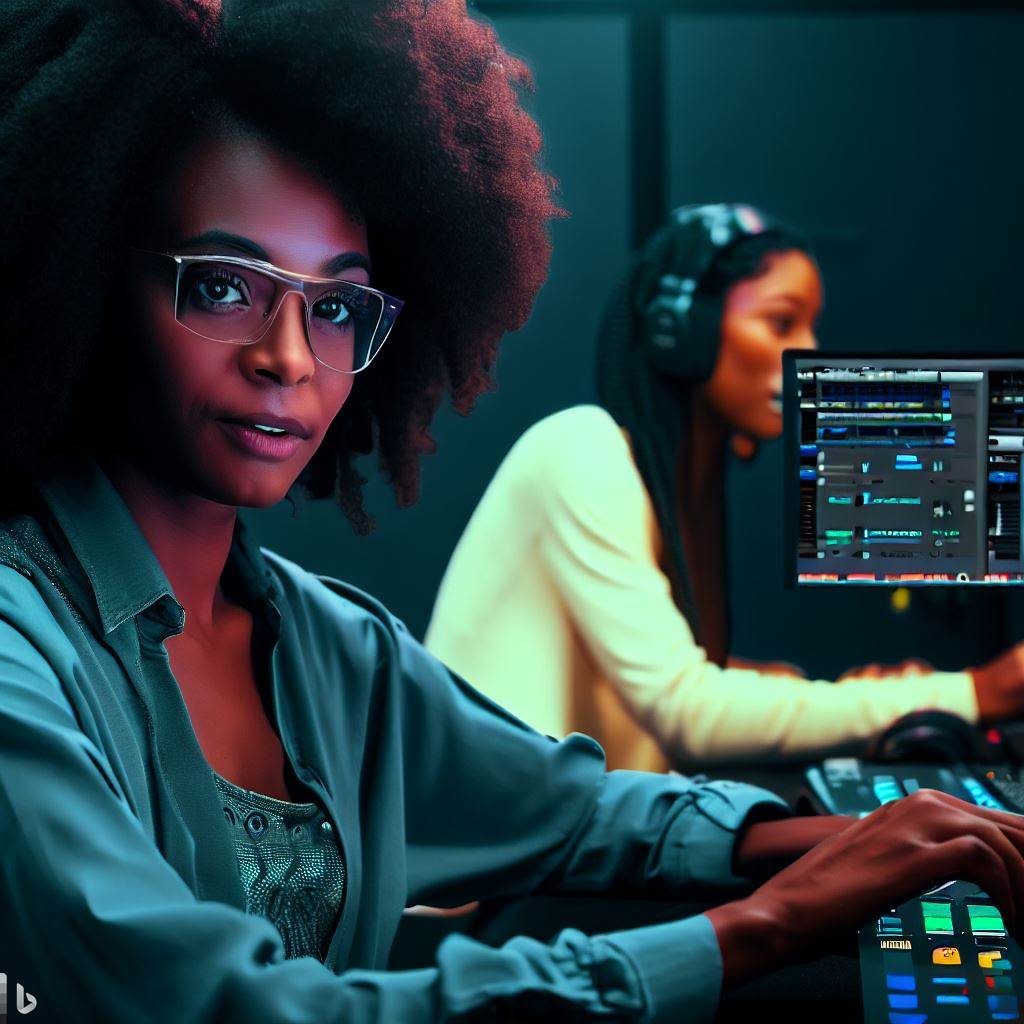Introduction
In Nigeria, women editors are making significant strides in the field, breaking barriers and redefining the industry.
The importance of this cannot be understated as it paves the way for gender equality and empowers women to excel in their careers.
With each breakthrough, these women editors inspire others, proving that talent and hard work are not limited by gender.
They challenge societal norms and stereotypes, paving the way for future generations of women in the editing field.
Breaking barriers in this male-dominated industry not only benefits individual women but also brings diversity and fresh perspectives to the table.
These women editors are reshaping narratives, amplifying unheard voices, and enriching the media landscape in Nigeria.
Their achievements are a testament to their resilience, perseverance, and determination, proving that gender should not be a hindrance to success.
These remarkable women have overcome obstacles, shattered glass ceilings, and are making waves in a traditionally male-centric field.
Their success stories ignite hope and encourage other women to pursue their passion for editing, knowing that they too can achieve greatness.
The impact of women editors extends beyond their professional sphere, inspiring change in societal perceptions and challenging gender biases.
In the end, the emergence of women editors in Nigeria is a game-changer. Their trailblazing efforts are breaking barriers and carving a path for gender equality in the editing industry.
As their impact continues to grow, it is clear that the future of editing in Nigeria is female.
Historical Overview of Editing in Nigeria
Traditional Gender Roles in Nigerian Society
- In Nigerian society, traditional gender roles have been largely patriarchal and male-dominated.
- Women were expected to focus on domestic duties and take care of their families.
- Their participation in professional fields, including editing, was historically limited.
Limited Involvement of Women in Editing
- Historically, women in Nigeria had limited involvement in the field of editing.
- They faced societal barriers and biases that restricted their access to educational and professional opportunities.
- Women’s potential contributions to the editing field were often overlooked and undervalued.
Notable Female Editors in Nigeria’s History as Pioneers
- Flora Nwapa was a notable pioneer who became the first female Nigerian novelist and editor.
- She challenged societal norms by publishing her works and breaking gender barriers in the literary world.
- Funmilayo Ransome-Kuti, a prominent activist, also made notable contributions as an editor, empowering women through her writings.
- Buchi Emecheta, an internationally recognized author, utilized her writing and editing skills to advocate for women’s rights.
In Nigeria’s history, editing was predominantly male-dominated due to traditional gender roles and societal biases.
However, notable women like Flora Nwapa, Funmilayo Ransome-Kuti, and Buchi Emecheta defied norms and paved the way for future generations of women editors.
Their contributions continue to inspire and encourage women to shatter barriers and make waves in the field of editing in Nigeria.
Read: Skills Required for a Successful Editing Career in Nigeria
Current Landscape of Women in Editing
Statistics and data on the current representation of women in the editing industry in Nigeria
- Nigeria currently has a significant gender imbalance in the editing industry.
- According to recent statistics, only 30% of editors in Nigeria are women.
- This underrepresentation of women in editing is a pressing issue that needs attention.
- There is a need to create more opportunities and support systems for women in this field.
Challenges Faced by Women Editors in Nigeria Today
- Gender bias and discrimination are prominent challenges faced by women editors in Nigeria.
- Women often struggle to receive equal pay and recognition for their work.
- The glass ceiling effect hinders their career growth and progression.
- Juggling work and family responsibilities adds an extra layer of difficulty for women editors.
- Rampant sexism in the workplace creates a hostile environment and inhibits women’s professional growth.
Examples of Successful Women Editors and Their Achievements
Ada, a renowned editor, has successfully edited several best-selling Nigerian novels. She has received numerous awards for her exceptional editing skills and contributions to the industry.
Ada has broken barriers and shattered stereotypes, inspiring aspiring women editors.
Chika is another remarkable editor who started her own editing firm, empowering other women in the industry. Under Chika’s leadership, her firm has achieved great success and recognition.
In a nutshell, the current landscape of women in editing in Nigeria is marked by a significant gender imbalance. Only 30% of editors in Nigeria are women, indicating a pressing need for change.
Women editors face various challenges such as gender bias, unequal pay, and the glass ceiling effect.
However, there are successful women editors like Ada and Chika who have achieved remarkable feats in the industry, inspiring other women to break barriers.
To foster equality in editing, it is crucial to create more opportunities, tackle discrimination, and provide support systems for women editors in Nigeria.
Read: Nigeria’s Editing Industry: A Comprehensive Overview
Breaking Barriers: Success Stories of Women Editors
Inspiring Stories and Case Studies
- Adaobi Tricia Nwaubani, a prominent editor, used her platform to shed light on social issues in Nigeria.
- Amina Yuguda, an editor known for her impactful storytelling, has won numerous awards for her work.
- Oluwatoyosi Ogunseye, the first female editor of a major Nigerian newspaper, has revolutionized investigative journalism.
- Funke Egbemode, an esteemed editor, played a crucial role in the transformation of Nigerian media.
- Bilikiss Adebiyi-Abiola, a trailblazing editor, founded a digital media platform that focused on women’s empowerment.
Achievements, Awards, and Recognition
- Adaobi Nwaubani’s piece on child brides earned her the CNN African Journalist of the Year award.
- Amina Yuguda was honored with the BBC World News Komla Dumor Award for her exceptional storytelling.
- Oluwatoyosi Ogunseye received the Knight International Journalism Award for her impactful investigative reporting.
- Funke Egbemode’s outstanding contributions earned her the Nigerian Academy of Science Media Award.
- Bilikiss Adebiyi-Abiola was recognized as one of Forbes’ 30 Most Promising Young Entrepreneurs in Africa.
Contributions to Societal Change and Inspiration
- Adaobi Nwaubani’s investigative pieces on corruption sparked public outrage and calls for accountability.
- Amina Yuguda’s stories on gender inequality have encouraged societal discussions and policy changes.
- Oluwatoyosi Ogunseye’s exposés led to significant government reforms and increased transparency.
- Funke Egbemode’s advocacy for press freedom has empowered journalists and enhanced media professionalism.
- Bilikiss Adebiyi-Abiola’s digital platform has inspired countless women to pursue their dreams and break barriers.
These women editors have truly made waves in Nigeria, breaking barriers and making a significant impact through their work.
Their inspiring stories and case studies serve as a testament to their determination, talent, and dedication.
Not only have they achieved remarkable success, but they have also been recognized and awarded for their exceptional contributions.
Inspiring changes made by these women
Adaobi Tricia Nwaubani, widely respected for her journalism, used her platform to expose social issues and foster change.
Her CNN African Journalist of the Year award-winning piece on child brides stirred public outrage and initiated conversations on this sensitive topic.
Amina Yuguda, known for her exceptional storytelling skills, has had a profound impact on society. Her work addressing gender inequality has sparked important conversations and influenced policy changes.
Yuguda’s talents were recognized when she received the prestigious BBC World News Komla Dumor Award.
Oluwatoyosi Ogunseye’s groundbreaking investigative reporting has led to significant reforms and increased transparency.
As the first female editor of a major Nigerian newspaper, she has inspired a new generation of journalists to pursue fearless and impactful journalism.
Ogunseye’s achievements were acknowledged with the Knight International Journalism Award.
Funke Egbemode’s contributions to Nigerian media have been transformational. As an esteemed editor, she has played a pivotal role in shaping the industry and advocating for press freedom.
Her dedication earned her the Nigerian Academy of Science Media Award, solidifying her position as a prominent figure in journalism.
Bilikiss Adebiyi-Abiola, a trailblazing editor, recognized the need for a digital platform focused on women’s empowerment.
She founded a successful media platform that has inspired and empowered women across Nigeria.
Her efforts were recognized when she was named one of Forbes’ 30 Most Promising Young Entrepreneurs in Africa.
These women editors have not only achieved immense success individually but have also contributed to societal change and inspired others.
Their courage, resilience, and determination have paved the way for future generations of women in the field.
Through their powerful stories and remarkable accomplishments, they continue to break barriers and make waves in Nigeria.
Read: Pioneering the Path: The Rise of Editors in Nigeria

Challenges Faced by Women Editors
Women editors in Nigeria, like their counterparts around the world, face numerous challenges as they strive to make their mark in the industry.
These obstacles range from gender bias and unequal opportunities to the struggles of maintaining a work-life balance.
Gender Bias
One of the most common obstacles faced by women editors is gender bias.
Despite their qualifications and abilities, women often find themselves having to work harder than men to prove themselves in a male-dominated field.
They may face skepticism and doubt about their skills and competence, solely based on their gender.
Furthermore, gender bias can also manifest in the form of unequal pay. Women editors may earn less than their male counterparts, even if they have similar education and experience.
This wage gap is not only unjust but also discourages women from pursuing careers in editing.
Unequal Opportunities
Women editors also encounter unequal opportunities in the industry. They may face barriers when trying to access leadership positions or projects that are considered more prestigious.
This can hinder their professional growth and limit their chances of advancing their careers. Additionally, women may find it challenging to break into established networks and circles of influence.
They may be excluded from important discussions and decision-making processes, preventing them from having a voice and influence within the industry.
Work-Life Balance
Another significant challenge faced by women editors is maintaining a work-life balance.
The demands of the job, such as tight deadlines and long hours, can make it difficult for women to juggle their personal and professional lives.
This challenge can become even more pronounced for women who are also mothers or caregivers.
Given these challenges, it is crucial to recognize the intersectionality of gender and other factors that may further impede progress for women editors.
Factors such as ethnicity or socioeconomic status can add additional layers of discrimination and hinder the advancement of women in editing.
Promoting Gender Equality in Editing
Despite these challenges, there are existing initiatives and organizations that are actively working towards promoting gender equality in editing.
These initiatives aim to create a more inclusive and supportive environment for women editors, ensuring equal opportunities and fair treatment.
For example, some organizations provide mentorship programs that pair aspiring women editors with experienced professionals who can guide them and support their career development.
These mentorship opportunities not only provide valuable advice but also help women editors build the necessary networks to thrive in their field.
Furthermore, there are organizations that advocate for equal pay and work towards closing the wage gap in the editing industry.
These initiatives strive to ensure that women editors receive fair compensation for their work, regardless of their gender.
In short, women editors in Nigeria face numerous challenges, including gender bias, unequal opportunities, and difficulties in maintaining a work-life balance.
However, through the efforts of various organizations and initiatives, progress is being made towards promoting gender equality in editing.
It is crucial to continue addressing these challenges and working towards a more inclusive and equitable industry for women editors.
Read: What Salary Can an Editor Expect in Nigeria? The Reality
Gain More Insights: Creating Hits: The Role of Music Producers in Nigeria’s Pop Scene
Delve into the Subject: An Insider’s Look at the Copywriter Profession in Nigeria
Empowering Women in Editing
In Nigeria, women editors are breaking barriers and making waves in the field of editing.
This section explores strategies to empower and encourage aspiring women editors, the importance of mentorship programs, networking opportunities, and professional development resources, as well as available scholarships, grants, or fellowships.
- Create awareness: Organize workshops, conferences, and seminars to highlight the importance of women in editing and create a sense of empowerment.
- Provide mentorship: Pair aspiring women editors with experienced professionals who can guide and offer valuable insights.
- Foster networking opportunities: Encourage women editors to join professional associations and attend industry events to network and build connections.
- Promote skill development: Offer training programs and courses specifically designed for women editors to enhance their editing skills and stay up-to-date with industry trends.
- Collaborate with educational institutions: Work with universities and colleges to introduce editing programs that cater to the needs of aspiring women editors.
The Importance of Mentorship Programs, Networking Opportunities, and Professional Development Resources
Mentorship Programs
- Guidance and support: Mentorship programs provide aspiring women editors with access to experienced professionals who can offer guidance, advice, and encouragement.
- Skill enhancement: Mentors help women editors develop their editing skills, broaden their perspectives, and enhance their professional growth.
- Industry insights: Mentors share their industry knowledge, challenges, and success stories, which can be invaluable for aspiring women editors.
Networking Opportunities
- Building relationships: Networking allows women editors to connect with professionals in their field, exploring opportunities for collaboration and career advancement.
- Learning from others: Interacting with peers and industry leaders enables women editors to learn from their experiences, gain insights, and stay relevant.
- Opening doors: Networking can lead to job referrals, freelance opportunities, and exposure to potential clients, expanding women editors’ professional networks.
Professional Development Resources
- Workshops and seminars: Attending development programs equips women editors with new skills, enhances their knowledge, and keeps them updated with industry advancements.
- Online resources: Access to online platforms, forums, and webinars offers a wealth of information for women editors to enhance their editing expertise.
- Conferences and events: Participating in conferences and industry events not only provides learning opportunities but also allows women editors to showcase their work and gain recognition.
Scholarships, Grants, and Fellowships for Women in Editing
- Hilltop Editing Scholarship: This scholarship provides financial support to women pursuing a career in editing.
- The Judith Grant for Women Editors: The grant aims to assist women editors in funding their projects or attending professional development programs.
- Women in Editing Fellowship: This fellowship offers women editors the opportunity to work on a specific editing project while receiving mentorship and guidance.
In general, empowering and encouraging aspiring women editors in Nigeria requires a multi-faceted approach.
By implementing strategies such as awareness campaigns, mentorship programs, networking opportunities, and providing professional development resources, the barriers can be broken, and women editors can thrive in the field.
Conclusion
Breaking barriers for women editors in Nigeria is of utmost importance. It allows for diverse perspectives, insights, and talent to shape Nigeria’s media landscape and enrich societal discourse.
Continued support, gender equality, and recognition are crucial to ensure that women in this field can thrive and achieve their full potential.
It is our collective responsibility to create an inclusive environment where women editors can excel.
As readers, we must actively support and amplify the voices of women editors by sharing their work and stories.
By doing so, we contribute to the dismantling of gender biases and contribute to a more equitable society.
Let us stand together in breaking barriers, advocating for gender equality, and celebrating the achievements of women editors in Nigeria.
Together, we can create a future where talent and capability are recognized regardless of gender.




